In celebration of International Women in Engineering Day on June 23, we spent some one-on-one time with our Women’s Employee Resource Network members to talk about what attracted them to the field, the challenges they’ve faced, and the hopes they have for the future of our industry.
Were you inspired by any female pioneers in the engineering field to start your career?
One of my favorite inspirational woman pioneers in the engineering field is Hattie T. Scott Peterson. She was the first African-American woman to gain a degree in civil engineering, and in 1954 was the first Black woman engineer to join the U.S. Army Corps of Engineers. Hattie and I have many similarities, including graduating from a HBCU with a degree in civil engineering and being members of the Alpha Kappa Alpha Sorority, Incorporated. I’ve always been inspired by her many contributions to society and the Army Corps. Peterson’s legacy stands as a story of achievement, inspiration, hope and perseverance. She reminds us, not only of what can be achieved by one person, but of our collective responsibility to become a more inclusive and accepting society.
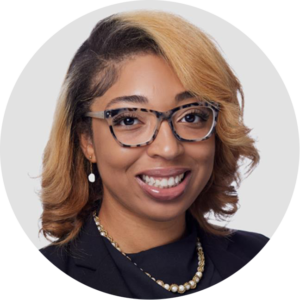 Imani Moon
Imani Moon
Transportation Engineer
Assistant Project Manager
Midtown Atlanta, GA
Were you inspired by any female pioneers in the engineering field to start your career?
My mom was the biggest inspiration for me. She was a well-respected engineer in the town I grew up in back home in Romania. She was the first female to lead a team of mostly male engineers and designers in the automotive industry, and was always proud of their work and the good team collaboration. She found the challenges and solutions within the design work to be very engaging, interesting and rewarding.
What is a unique challenge you’ve faced as a female in the industry and how did you overcome it?
As the only woman engineer at one of the companies I worked for back in the day, I was sometimes faced with adversity from some of my former co-workers and clients. I want to make it very clear that those times were the exception and not the norm for me, personally.
Whether it was my foreign accent, the fact that I was a woman, or maybe both, I could sometimes feel the unease from certain people. Some would doubt or almost dismiss my abilities from the get-go, and this made it tough for any further collaboration. Through their choice of words, body language or tone of their voice, I could feel a tension and sense the negativity. One guy even went so far as to curse at me and tell me I belonged in the kitchen cooking for my family instead of being an engineer. Needless to say, he was fired.
As a woman in a mostly male-dominated industry, there might be a perception that you need to prove yourself more and “lean in.” I never thought too much of this, but I always tried to command respect by clearly conveying my opinions and being a good team player and efficient worker. Once people get to know you and trust your knowledge, the collaboration tends to get a lot better.
I was able to overcome most of those moments with the help of my other co-workers who always stood up for me, made me feel like I belonged and motivated me to continue my work. I can call myself lucky enough to have worked at some great firms with some awesome engineers, and I’ve had great mentors and managers who inspired me to challenge myself and advance my career.
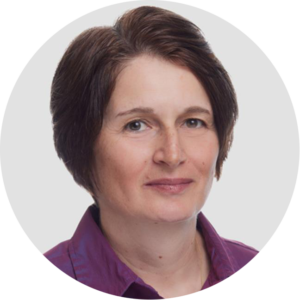 Claudia Capraru
Claudia Capraru
Electrical Engineer
Senior Designer
Alpharetta, GA
Were you inspired by any female pioneers in the engineering field to start your career?
There are a few folks who encouraged me to enter into the engineering field, but one notable person early on when I was attending Clemson University was Serita Acker. Serita is the director of Clemson’s Programs for Educational Enrichment and Retention (PEER) and Women in Science and Engineering (WISE) program, where I became a mentor to some of the incoming freshman class of women in WISE and, in turn, came directly under her leadership within the program. Serita has developed an amazing, award-winning program to encourage and retain underrepresented populations in STEM fields, and created a community for those folks in which they can feel comfortable and supported, and that I benefited from at a critical stage when trying to stick with engineering.
How did you get into the engineering field?
I come from a family of engineers —my father, grandfather, uncle and older sister all pursued and had/have careers in engineering. So, in many ways it seemed the logical path to take. But l didn’t go into it willingly, at least not at first. I am drawn to arts and architecture, so I tried my hand at majoring in architecture first before I realized that engineering was a better fit for me. In fact, over time, I found that things I liked, such as creativity, fit into engineering very well. I also discovered how much I enjoy trying use math and science to find a great “fix” to a problem.
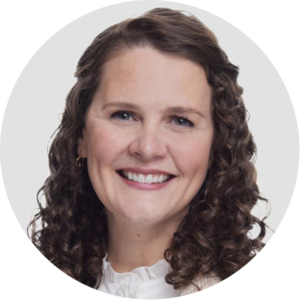 Sarah E. Blackburn
Sarah E. Blackburn
Roadway Engineer
Transportation Engineer
Alpharetta, GA
Were you inspired by any female pioneers in the engineering field to start your career?
While I was in college, there were a few female engineers pursuing their degrees, but I did find some bias among fellow engineering students in a male-dominated field who doubted that “a girl” was fit for civil engineering. I used their doubt to further my passion and to break through barriers—both for myself and for future women who wanted to pursue their dream of being an engineer. I was surprised to still find that bias in the workplace when I started my career in 2003, but I never gave up and pushed through the biases to prove that I was just as qualified as any other person in the field. Each one of us should be treated as equals in this industry (or any industry) because it is what you find within a person that can achieve greatness. Supporting women and one another helps to break down barriers so that we can be seen as equals.
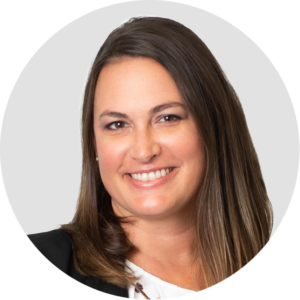 Rachel Westerfield
Rachel Westerfield
Civil Engineer
Senior Engineer
Jackson, MS
What is a unique challenge you’ve faced as a female in the industry and how did you overcome it?
The first time that I was in a work-related social event where I was the only woman, it required a type of bravery that I never knew I would need—to simply get out of my own head to enjoy the conversations. I bet no one else thought twice about me being the only woman, but any time you’re in a room in which you’re clearly the only one who’s different, it can be intimidating and uncomfortable. I’ve learned that, in situations where I feel completely different from everyone else, I need to shift my focus away from my differences or trying to be “one of the boys,” and simply focus on being myself and making genuine connections with my peers.
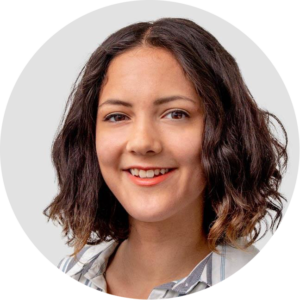 Ruth Steele
Ruth Steele
Bridge Engineer
Engineer-in-Training
Nashville, TN
How have you seen the engineering field change over the years?
When I was in college and in the early years of my career, the number of women involved in engineering were few. I am happy to see that the ratio of women in engineering—both in college enrollment and in the workforce—appears to be much closer to 50/50. Women are finally being represented and included as equals in the workplace.
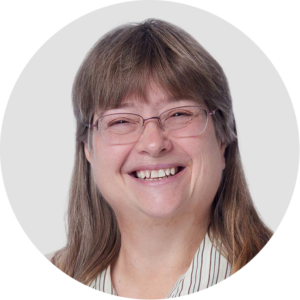 Shannon Dodd
Shannon Dodd
Transportation Engineer
Senior Project Manager
Midtown Atlanta, GA
How have you seen the engineering field change over the years?
More women! Early in my career, the Ladies Room was like my private lounge away from co-workers, and people assumed that I was in the conference room to take the meeting minutes—not to serve as the project engineer. It’s great that I’m not the only female engineer “in the room” now, and that it’s no longer automatically assumed that I’m not a technical lead.
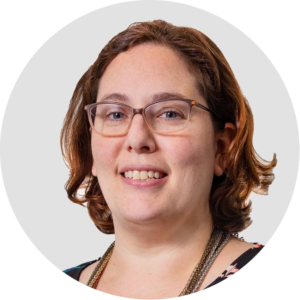 Ivie Goorsky
Ivie Goorsky
Mechanical Engineer
Senior Project Manager
Midtown Atlanta, GA
Why did you choose Gresham Smith?
Such an easy question! I started with Gresham Smith in 1998. Gresham Smith is more like family than a company, and they’ve always encouraged me to be me. Sometimes I have to be a mom first; sometimes I put my engineering hat on first; but, more often than not, I’m both. This company has always had my back through difficult family times and struggles. So, I don’t think I chose Gresham Smith. I think they chose me, and then I’ve been choosing them back every day since then.
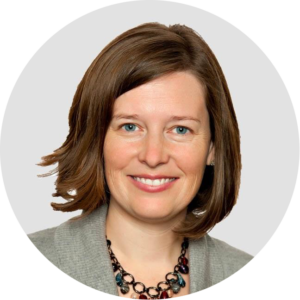 Leslie B. Corlett
Leslie B. Corlett
Transportation Engineer
Senior Engineer
Birmingham, AL
Why did you choose Gresham Smith?
Because of the people and the culture—and I’m glad I did. Gresham Smith’s management has stood behind their statements of culture, and they have clearly demonstrated their commitment over the past couple of years by investing in their people, even during the uncertainty of a pandemic.
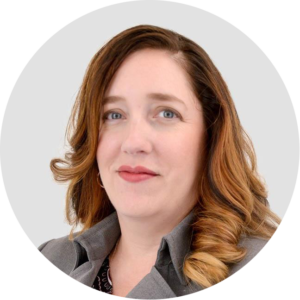 Christina Florez
Christina Florez
Electrical and Computer Engineer
Senior Engineer
Birmingham, AL
How did you get into the engineering field?
I stumbled into the engineering field. I changed my major over and over during my first two years of college, not able to make up my mind where I wanted to go. I looked for a major focused in math and science and settled for civil engineering since it was broad and I still wasn’t sure what I wanted to do. After taking more and more classes, I found my career narrowing down to transportation and finally, after an internship, I landed in traffic. In high school, I didn’t even know what I do today was an option, but I wouldn’t trade it.
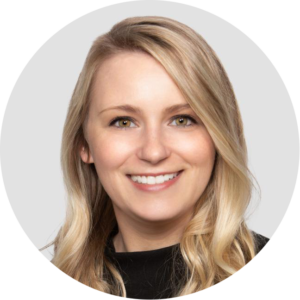 Kari Pucker
Kari Pucker
Traffic Engineer
Project Manager
Jacksonville, FL